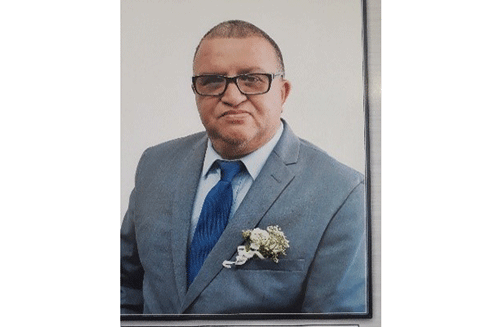My cousin’s memorial service in December brought me back to my childhood church in Lüderitz, the church he had joined in 1978. We sat in the sanctuary where I was baptised, confirmed and ordained, and met friends on the parlour where the church family had watched me grow up.
Here, I sang in the children’s choir, played in the choir, led youth Sunday worship, participated in the Christmas pageants, helped teach Sunday school, led the leadership team of Fellowship, and joined in a ministry to inner city kids. It was in this church that I watched the Congregation debate the merits of the Church Union, heard them struggle over the participation in civil rights efforts around fair housing initiatives, and shared in the different debates over the church response to the KAIROS document of 1985.
I have often told people that this congregation cherished its young people, expected us to lead, and equipped us for that leadership. Several in my generation were ordained, many others offer leadership in other ways in the church. Two couples from my early years were at the service for my cousin. They played a large part in my decision to prepare for the ministry and later, during my studies, offered work with them. Ray opened their home to many of us for studies, for fellowship, for laughter.
Ray, along with his wife as a young couple, were such role models and encouragers! They and others embodied the extravagant welcome that is at the heart of our church. They courageously prodded me and others to engage the big issues of our day, sometimes in the face of opposition from others. They displayed a deep faith and piety centred in scripture and prayer.
Many of us who lead in various settings of the church can remember with affection and gratitude a Ray or Ann. With intentionality, they set us on a course towards leadership. They helped us discover and use our gifts. They loved us towards maturity. They were our mentors, and they became our friends.
This article focuses on the critical issue of leadership development for the church of Christ, and on the needs and gifts of youth and young adults in our midst. There is no more important task focus for us if we are to have a vibrant future. My visit “home” was not just a precious and poignant trip down memory lane. It was a time to be challenged to be the kind of church that nurtured me and others. How do we, today, cherish our young people? How do we communicate our expectations that they will lead? How do we equip them for leadership today, and for tomorrow?
In conclusion, as you read this article, give thanks for people who shaped your life and gave it direction. Even more, consider how you can become a person like that for young people today.
More than ever, the time for young people is right here, right now.



